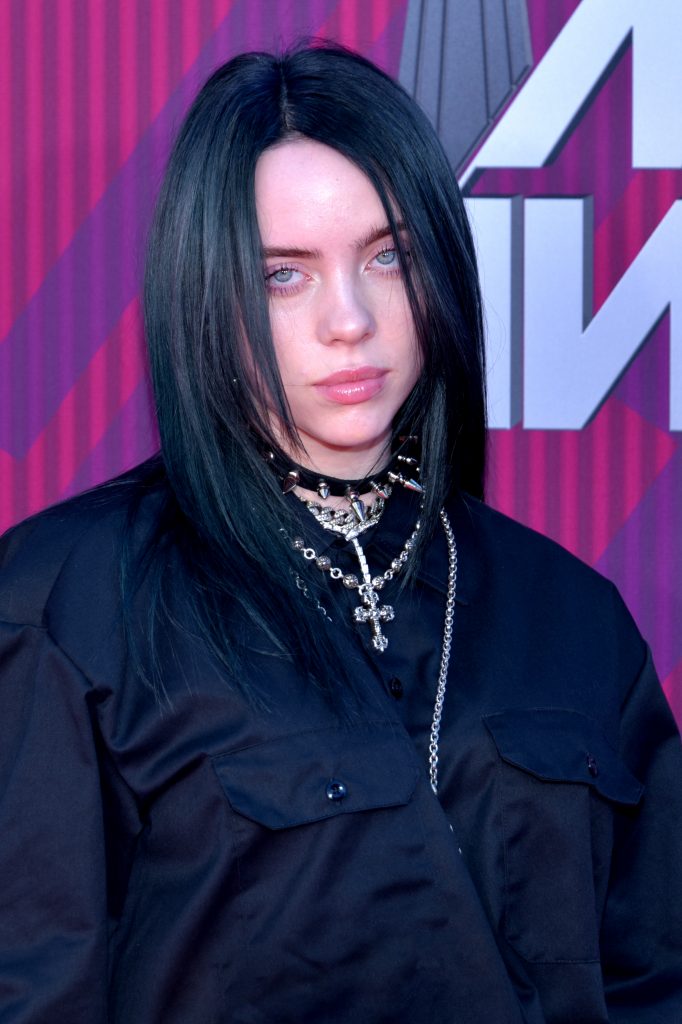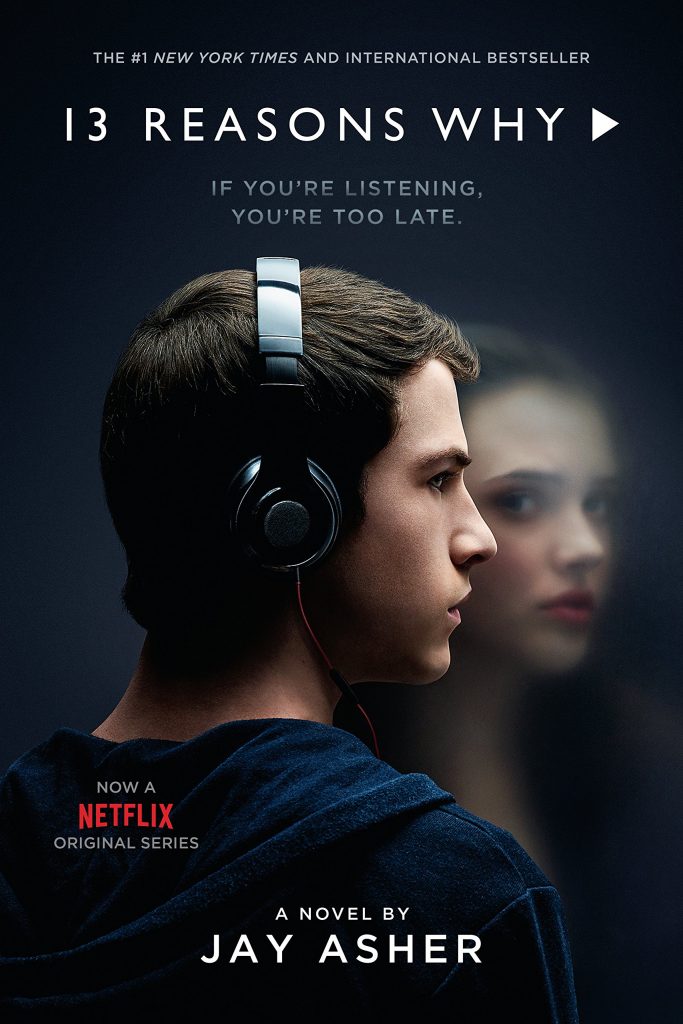Emerging as a phenomenon, Billie Eilish’s music left a strong impression on the audience because of its creative approach and style that went against the market. Although there are many conflicting opinions surrounding her unexpected popularity, the young artist’s talent and unique musical personality cannot be denied.

With her dark musical language and Emo-like expressions (almost never smiling), Billie created her own wave of ‘depression’: a large fan base – mostly in the US. Teenagers wholeheartedly support her works.
So, who is Billie Eilish?

Billie Eilish appears at the 2019 iHeartRadio Music Awards on March 14, 2019 in Los Angeles, California. (Photo by Glenn Francis/Pacific Pro Digital Photography)
Billie Eilish is an American singer and songwriter. She was first known through the song Ocean Eyes – a song written and recorded by her brother, Finneas O’Connell – which suddenly created a strong effect. strongly helped launch her later musical career. At that time, Billie was only 15 years old.

Growing up in a family of artists, with father Patrick O’Connell and mother Maggie Baird, Billie soon developed a love for music and cinema. Although educated at home for most of her early years, Billie joined a choir at age eight and wrote her first songs at age 11.
Thanks to being exposed to art since childhood, it is not difficult to understand why Billie’s musical talent blossomed so early. Following the success of Ocean Eyes , Billie released the single Bellyache , then the extended disc Don’t Smile At Me in 2017 and both received enthusiastic reception from the public.
A special connection with lovely – the feelings of people with depression
Combining Billie, her brother FINNEAS and singer Khalid – lovely is the official song of the famous Netflix television series 13 Reasons Why based on the novel of the same name. The song was also included in Billie’s extended album – Don’t Smile at Me in 2017.
For those who have experienced or are currently suffering from the pain that depression brings, it will be easy to understand what is said in the song. And this song – for me personally – is a true depiction of the feeling of being stuck with depression and is also the clearest proof of Billie Eilish’s success and difference from the majority of current artists. .

Before going into the meaning of the song, let’s listen to this song again!
(1) The song’s opening tells the listener about the ‘relationship’ between the main character and his disorder:
Thought I found a way
Thought I found a way out (out)
But you never go away (never go away)
So I guess I gotta stay now
(I thought I found a way
I thought I found a way out
But you never left
So I guess, I’ll just have to stay)

Depression often comes on suddenly and lasts for a long time. We may think it has gone forever, but then it returns without warning. The desperate confession begins with “I thought I found a way” – like a faltering word revealing an unpleasant truth that is repeating itself again. And so I guess, I have to stay – showing submission and resignation.
(2) The following Pre-chorus is the longing and waiting:
Oh, I hope some day I’ll make it out of hereEven if it takes all night or a hundred yearsNeed a place to hide, but I can’t find one nearWanna feel alive, outside I can’t fight my fear
(I hope that one day, I will escape from here
Even if it takes tonight or a hundred years from now
Need a place to hide, but can’t find it
Wanting to feel like I’m alive, outside of this place
But I can’t fight the fear)
Waiting for the day when you can feel like you’re alive – an incomprehensible wish for people with a healthy mind, but a somewhat distant dream for those suffering from depression. They cannot clearly feel any of their own emotions, whether it is happiness or sadness. Because of that, they always feel trapped in a mental cage and long to live outside this place .

Metaphorical image of Billie and Khalid’s feeling of imprisonment in the MV – when their own emotions cannot reach them (Source: https://gfycat.com)
(3) The fire of desire gradually extinguishes. The two artists are ironic, as if they are now enjoying everything as it comes:
Isn’t it lovely, all alone
Heart made of glass, my mind of stoneTear me to pieces, skin to boneHello, welcome home
(Isn’t it sweet, being here alone?
Heart of glass, mind of iron
Tear me into hundreds of pieces, from flesh to bone marrow
Hello, welcome home)
Billie opened up: “A lot of people can try to talk to me and help me get better or do something else, but it doesn’t change anything. The only person who can change the way I feel about life is me, and that’s not going to happen.”
Depressed patients with a glass heart make them very withdrawn as a self-defense instinct. On the contrary, they possess a hardened mind , closed because they are always self-absorbed. These things make the disease become a never-ending process of: Hello, welcome home.

(4) To describe the old life continuing again, Verse 2 opens with a pun when using walking instead of running in the sentence ‘Running out of time’ – ‘Time is gradually running out’, to express the fatigue and indifference to life that the main character has:
Walking out of timeLooking for a better place (looking for a better place)Something’s on my mindAlways in my head space
(I’m running out of time
Still looking for a better place
Something on the mind
Always there in my head)
(5) In this Pre-chorus, the phrase Oh, I hope has been replaced with But I know as an emphasis, to express belief in a better future. by the authors themselves:
But I know someday I’ll make it out of hereEven if it takes all night or a hundred yearsNeed a place to hide, but I can’t find one nearWanna feel alive, outside I can’t fight my fear
Finally, to end the song, the chorus once again ends with the words: Hello, welcome home – actually not a welcome word of love and protection, but like the character’s self-talk. main character – after trying to run away from home and then bitterly realizing he never left. Now, they are too familiar with this place and are forced to accept the truth. It’s still scary, but it’s familiar.

Does Billie Eilish’s music really cause depression?
As an issue that causes endless debate on social networks, no one can completely confirm whether her music has a good or bad influence on young people. Many people believe that Billie Eilish’s music has a negative impact on the psychology of teenagers, as her songs are often inspired by death, violence, dark corners of people and quite scary concepts. . This view was reinforced when her lovely work was one of the trademark songs in the soundtrack of 13 Reasons Why, when this series was said to increase the suicide rate of teenagers in the US.

Famous Netflix series (Source: amazon.com)
On the contrary, many people, even though they are not fans of Billie, still support her music because it has helped them ‘live peacefully’ with their mental pain. The feeling of being held back, not understood or listened to – especially among teenagers in puberty – is soothed by Billie’s music. Because she is also a young artist and can completely understand the emotions of her peers. But it doesn’t stop at teenagers, Billie’s music is strongly supported by famous artists such as former Beatles member Paul McCartney, Sporty Spice, Justin Bieber, Ariana Grande, Katy Perry,…
In the end, Billie Eilish – like many other artists around the world – is doing what she can: Sharing her emotions and thoughts with the audience, whether they are happy or sad. Music as well as Art have no limits, so it would be rigid if we classified a work as good or bad. The element of good/bad, good/bad, ultimately depends on the perspective of the person receiving the work. And depending on that factor, we can choose the appropriate way to enjoy that work.





